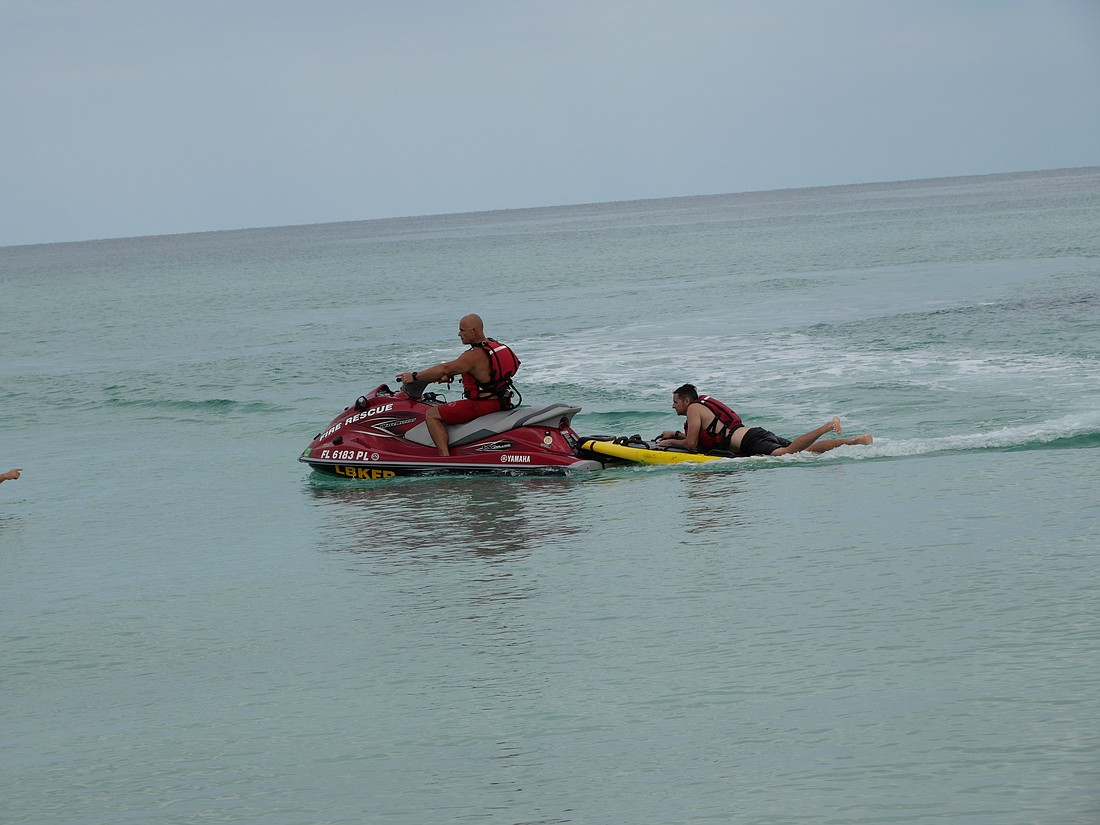- July 14, 2025
-
-
Loading

Loading

Longboat Key beaches do not have lifeguards, the traditional stations nor the colored flags on the beach that indicate safe swimming. But fire departments in the area are coming together for the “Stay Vigilant initiative” to try to prevent accidental water deaths.
The Longboat Key Fire Rescue Department is responsible for responding to any distress calls on the water. Public Information Officer Tina Adams said the department received 2,040 calls in 2022. Of those, 127 were “water rescue” calls. This category could involve anything from a boating accident to swimmers in distress due to a rip current.
Rip currents are strong currents that flow away from the shore. They typically form at low parts or near sandbars or structures such as jetties and groins. According to the National Atmospheric and Oceanic Administration, they could flow as fast as 8 feet per second.
“Signs that a rip current is present are very subtle and difficult for the average beachgoer to identify,” NOAA’s website says. “Look for differences in the water color, water motion, incoming wave shape or breaking point compared to adjacent conditions.”
The National Weather Service tracks surf zone related deaths, which total 43 so far in 2023. Of those, 38 deaths were caused by rip currents in the U.S.; 15 rip current deaths occurred in Florida. An estimated 100 people die from rip currents every year, and rip current rescues account for 80% of all beach rescues, the U.S. Lifesaving Association estimates.
Although a rip current can happen on any coast, Adams said Longboat Pass and New Pass are where the fire rescue department has noticed the strongest rip currents occurring.
To try to combat this, Longboat Key Fire Rescue recently joined the “Stay Vigilant Initiative” with the Sarasota County Fire Department, North Port Fire Rescue Department and the city of Venice Fire Department. The purpose of this initiative is to raise awareness of water safety and try to prevent accidental deaths related to water.
Residents who feel they can respond in case of a swimmer in distress can pick up a “water watcher” badge at these stations. This badge shows others that the person is capable of keeping an eye on children in or around the water. The idea is that volunteer water watchers are able to either help someone in distress in the water, or at least be able to call emergency services.
In the event that someone gets trapped in a rip current, NOAA makes it clear that the movement of a rip current is horizontal, not vertical — it will not inherently pull you under the water. The best practice, according to NOAA, is to stay calm and go with the current. Once you feel you are out of the pull of the current, swim parallel to the shore and then eventually back towards safety.
For more information about rip currents, visit the resources on NOAA’s website.